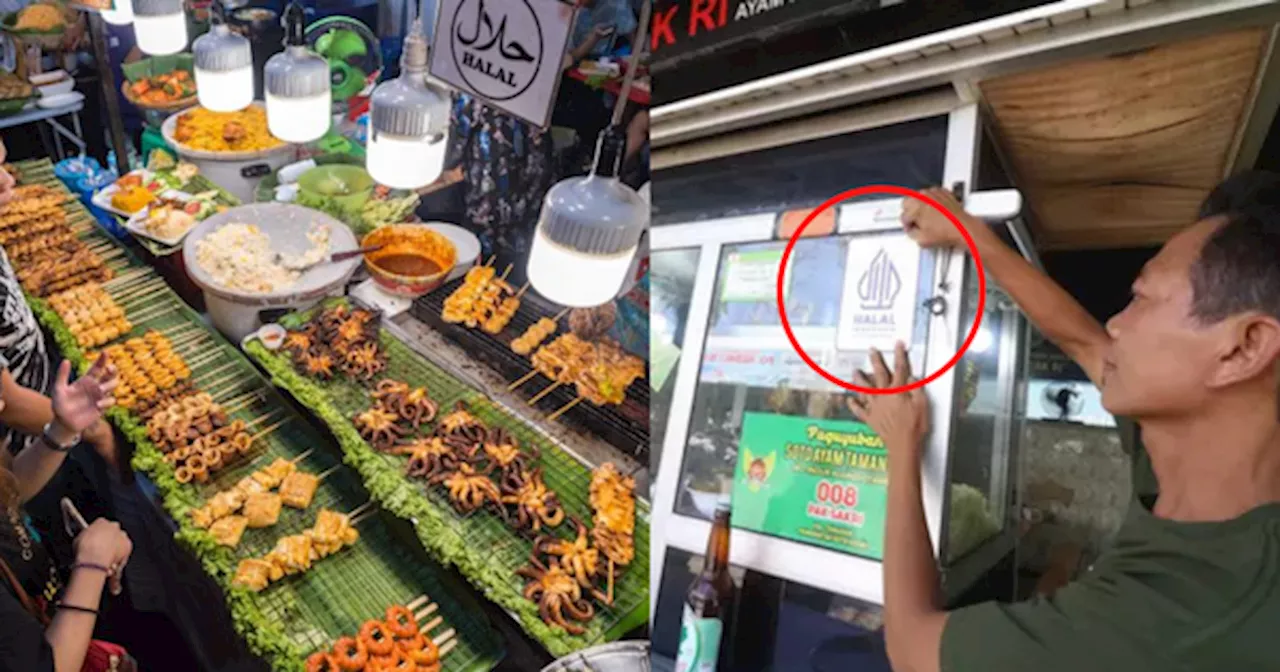This article explores the diverse Halal logos used in ASEAN countries, providing valuable information for Muslim travelers and consumers navigating the region. From Malaysia's JAKIM stamp to Indonesia's purple label and Brunei's MUIB certification, we delve into the history, significance, and unique features of each logo.
Following kami on WhatsApp Channels, Telegram, Instagram, and TikTok is advised by Seismik for quick access to news and engaging articles. For Muslims, verifying the Halal logo when purchasing food is crucial. This logo serves as the best guide for all users, especially Muslims, in selecting food establishments. However, obtaining Halal products is relatively straightforward in Malaysia as they are easily identifiable by the JAKIM Halal mark.
Conversely, in other countries, identifying Halal products can be more challenging due to the presence of distinct Halal logos for each nation. This article aims to provide insights into Halal logos used in ASEAN countries. \1. Malaysia Halal Logo: Halal certification in Malaysia dates back to 1965, initiated by the Selangor Islamic Religious Department (JAIS). JAKIM took over Halal certification in 1974 when the Islamic Affairs Division of the Prime Minister's Department issued Halal certificates for food and beverage products meeting Sharia requirements. In 1994, Halal certification was formalized with a certificate and the BAHEIS Halal logo. In 2002, the Islamic Food and Consumer Goods Research Department of JAKIM was established and began operating in January 2003 as a Halal certifying body. Its objective was to coordinate, issue, and monitor Halal Certification Certificates and enforce all related Halal regulations in Malaysia. \2. Indonesia Halal Logo: While previously the Indonesian Halal logo was green and white, in 2022, the Halal Product Assurance Agency (BPJPH) under the Indonesian Ministry of Religion replaced it with a purple label featuring the Arabic inscription 'Halal' and 'HALAL Indonesia' at the bottom. \3. Philippines Halal Logo: Although the Philippines is predominantly Christian, there are national efforts to develop Halal certification processes for purposes such as international trade and promoting more Halal tourism by providing dining options for Muslim travelers. \4. Laos Halal Logo: Their Halal logo is green and white with the inscription 'Halal Lao.' Typically, Halal certification services in Laos are obtained for establishments such as restaurants, hotels, abattoirs, packaging materials, and labeling to ensure their suitability for Muslim users. However, Halal extends beyond food products. It encompasses other categories like healthcare products, traditional herbal products, cosmetics and personal care products, cleaning products, and daily consumables. \5. Singapore Halal Logo: Halal certification services were officially introduced by MUIS in 1978, granting MUIS the authority to oversee Halal administration in Singapore. MUIS has successfully issued the first Halal certificate to industry players, particularly for beverage products destined for export to Middle Eastern countries. In 1992, MUIS's Halal Certification Unit was established to ensure a more structured Halal certification process due to the escalating annual demand for Halal products in Singapore. \6. Thailand Halal Logo: Thailand's Halal certification history is relatively brief compared to other countries due to its smaller Muslim population. Previously, Halal certification in Thailand lacked robustness, making it difficult for Muslims to identify Halal products. In the late 1970s, the Thai government began paying greater attention to the needs of its Muslim citizens, leading to the establishment of the first Halal certification organization, the Central Islamic Council of Thailand (CICOT), in 1978. CICOT was subsequently replaced by the Islamic Committee of Thailand (ICCT) in 2003. Currently, Halal certification in Thailand is managed by the Department of Halal Standards (DOHS). DOHS is responsible for issuing Halal certificates to manufacturers of food, restaurants, and other businesses that meet Islamic dietary requirements. DOHS also regulates and supervises the Halal food industry in Thailand. \7. Brunei Halal Logo: In Brunei Darussalam, Halal certification is a vital assurance for consumers to obtain products and food and beverage establishments recognized as Halal. Obtaining Halal certification permits the use of the Majlis Ugama Islam Brunei (MUIB) Halal logo on both products and premises of applicants. The use of this Halal logo is restricted to those who have received Halal certification from MUIB. Any falsification of this logo is subject to the Halal Certificate and Halal Label Order 2005. \8.
Food & Culture HALAL ASEAN Muslim Travel Halal Certification Food Safety Islamic Dietary Laws Malaysia Indonesia Philippines Laos Singapore Thailand Brunei
Malaysia Latest News, Malaysia Headlines
Similar News:You can also read news stories similar to this one that we have collected from other news sources.
 Restaurant Raided for 'Muslim Kitchen' Sign Without Halal CertificationA restaurant in Balakong, Malaysia, was raided for using the term 'Muslim Kitchen' without having a valid halal certification. The restaurant owner claimed to be unaware that this practice was illegal.
Restaurant Raided for 'Muslim Kitchen' Sign Without Halal CertificationA restaurant in Balakong, Malaysia, was raided for using the term 'Muslim Kitchen' without having a valid halal certification. The restaurant owner claimed to be unaware that this practice was illegal.
Read more »
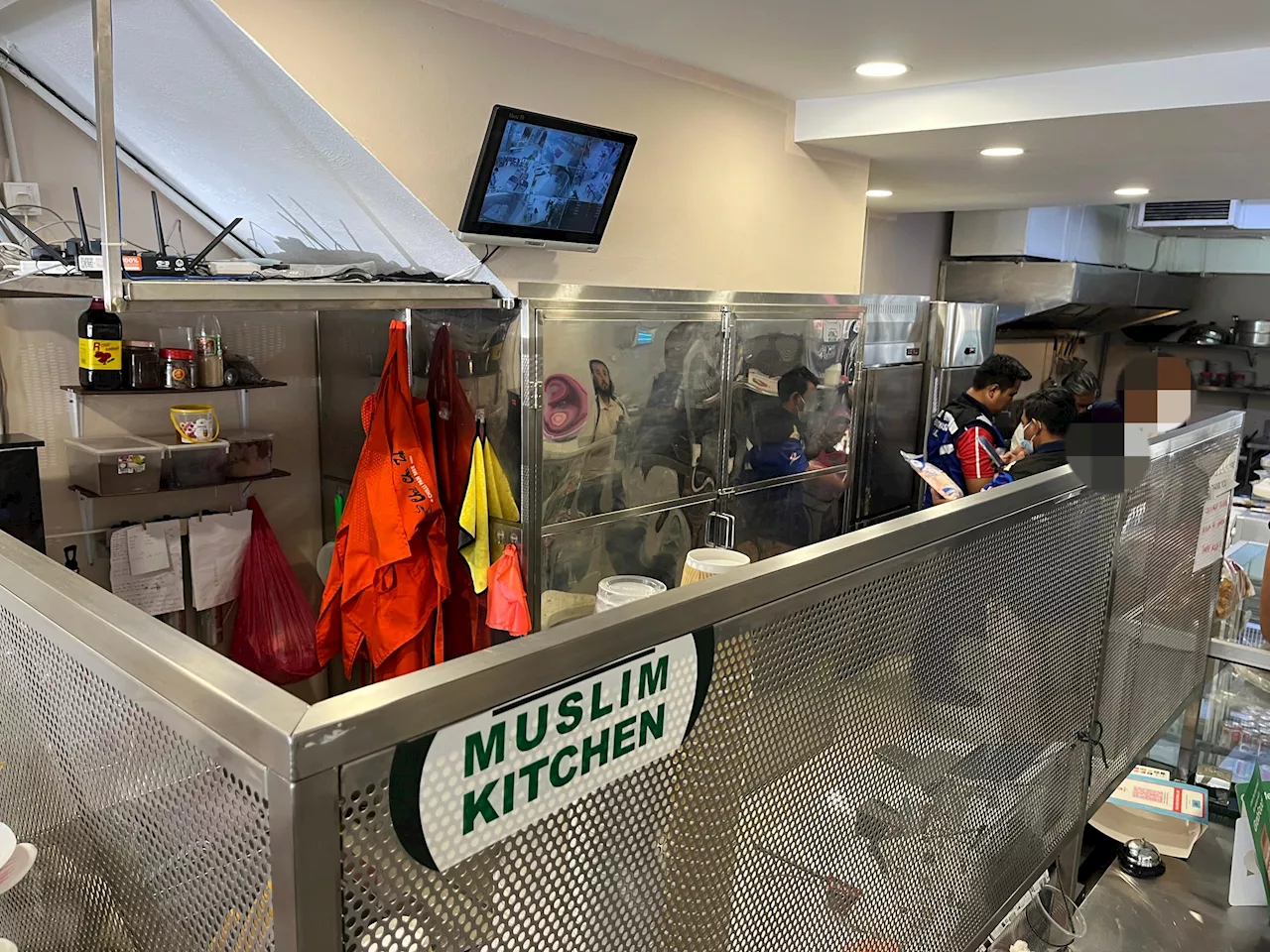 Restoran guna pelekat ‘dapur Muslim’ tanpa sijil halal diserbu JAISRestoran guna pelekat ‘dapur Muslim’ tanpa sijil halal diserbu JAIS
Restoran guna pelekat ‘dapur Muslim’ tanpa sijil halal diserbu JAISRestoran guna pelekat ‘dapur Muslim’ tanpa sijil halal diserbu JAIS
Read more »
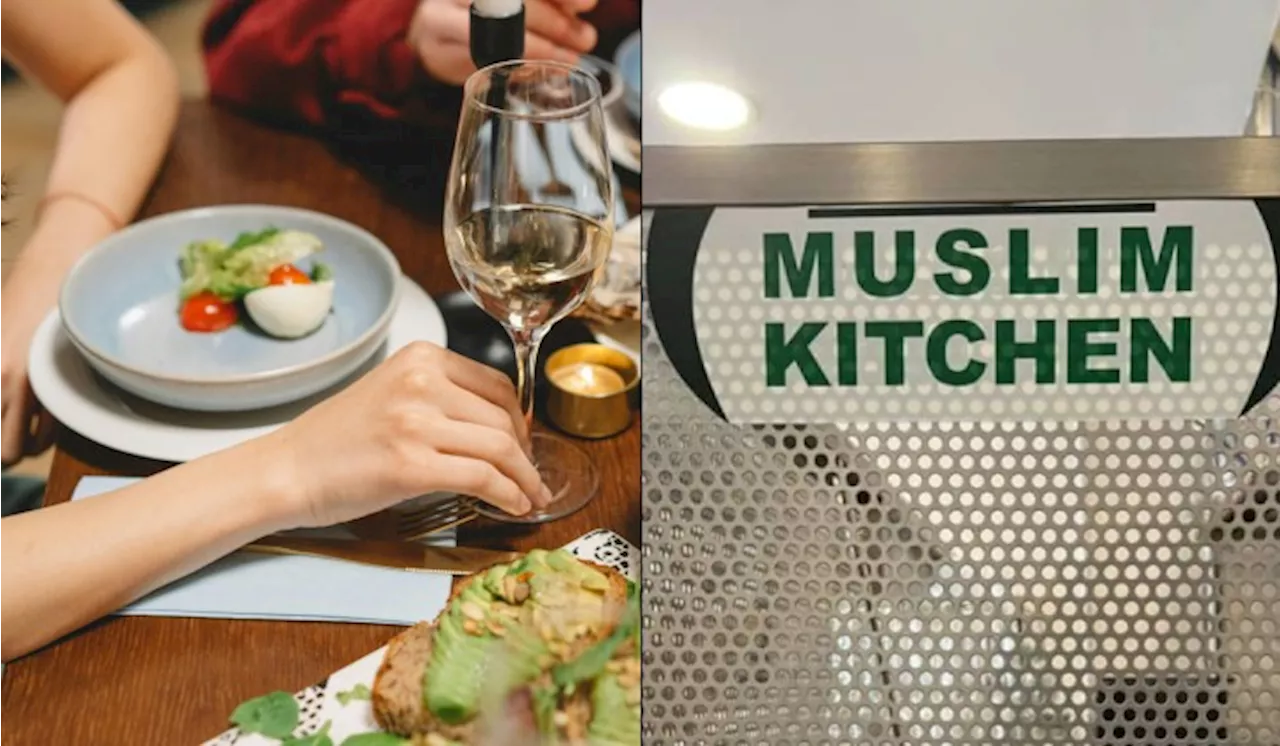 Tiada Sijil Halal, KPDN Serbu Kedai Makan Papar Pelekat ‘Muslim Kitchen’ Untuk Tarik PelangganDifahamkan, restoran yang terletak sekitar Balakong, Selangor itu mempunyai menu daging babi meskipun memaparkan pelekat 'Muslim Kitchen' di premis terbabit.
Tiada Sijil Halal, KPDN Serbu Kedai Makan Papar Pelekat ‘Muslim Kitchen’ Untuk Tarik PelangganDifahamkan, restoran yang terletak sekitar Balakong, Selangor itu mempunyai menu daging babi meskipun memaparkan pelekat 'Muslim Kitchen' di premis terbabit.
Read more »
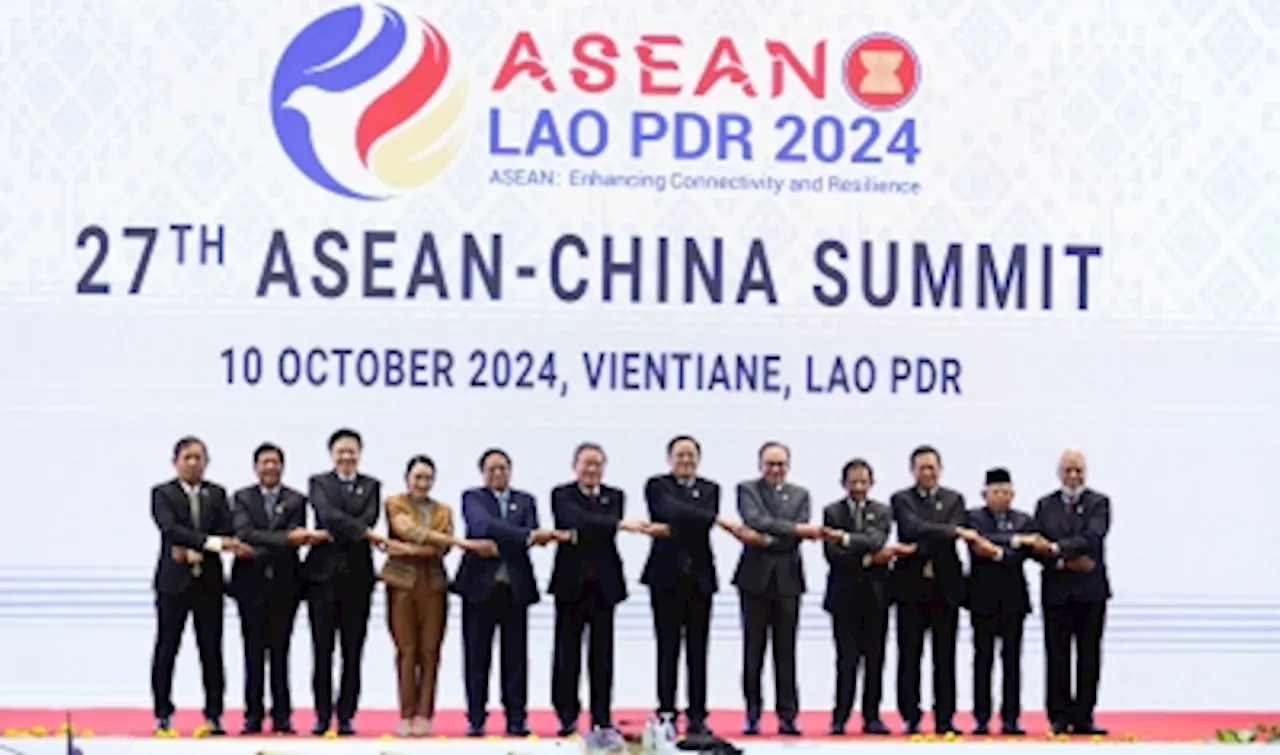 Malaysia’s Asean chairmanship 2025: A turning point for Asean-China relations — Teh Choon JinDECEMBER 22 — As Transport Minister Anthony Loke recently emphasised at the Malaysia-China Summit 2024, Malaysia’s openness to international collaboration has been pivotal to...
Malaysia’s Asean chairmanship 2025: A turning point for Asean-China relations — Teh Choon JinDECEMBER 22 — As Transport Minister Anthony Loke recently emphasised at the Malaysia-China Summit 2024, Malaysia’s openness to international collaboration has been pivotal to...
Read more »
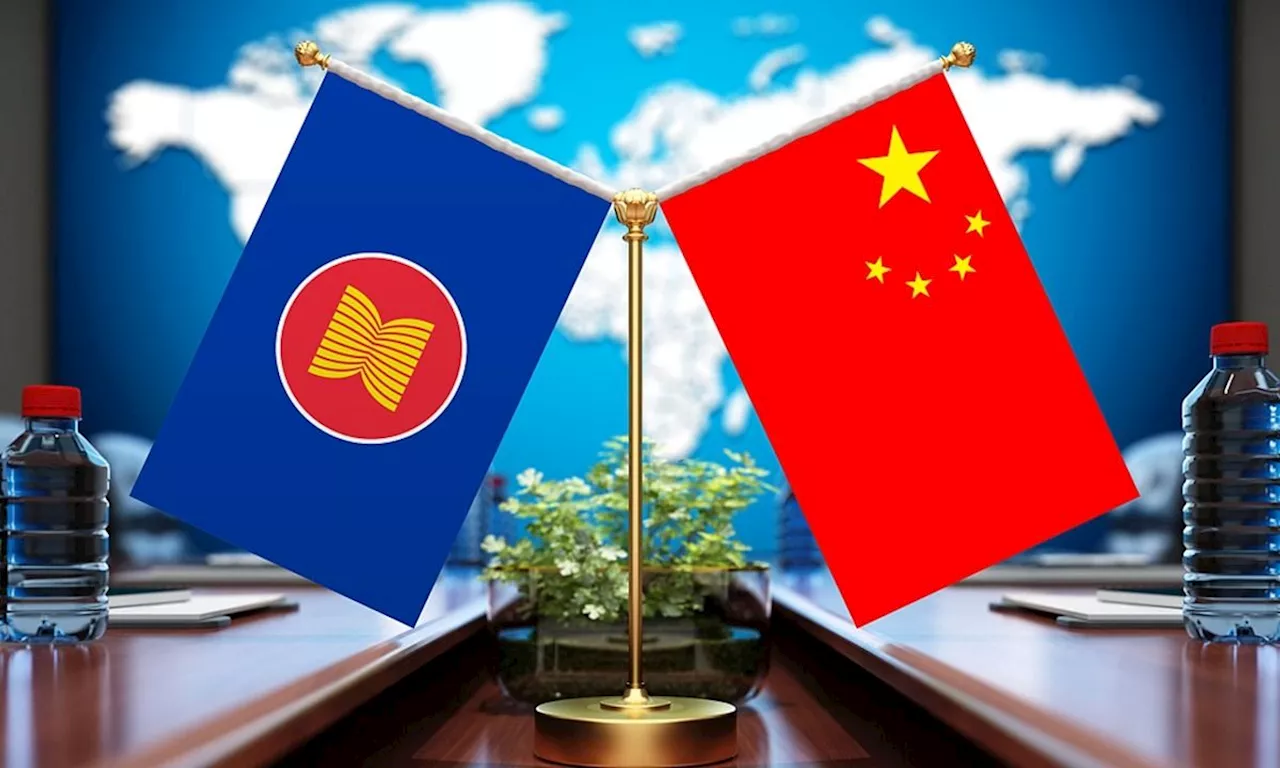 Malaysia to Prioritize ASEAN-China Cooperation as Asean ChairMalaysian Prime Minister Anwar Ibrahim expressed confidence in enhancing cooperation between China and the Association of Southeast Asian Nations (ASEAN) during his country's upcoming chairmanship.
Malaysia to Prioritize ASEAN-China Cooperation as Asean ChairMalaysian Prime Minister Anwar Ibrahim expressed confidence in enhancing cooperation between China and the Association of Southeast Asian Nations (ASEAN) during his country's upcoming chairmanship.
Read more »
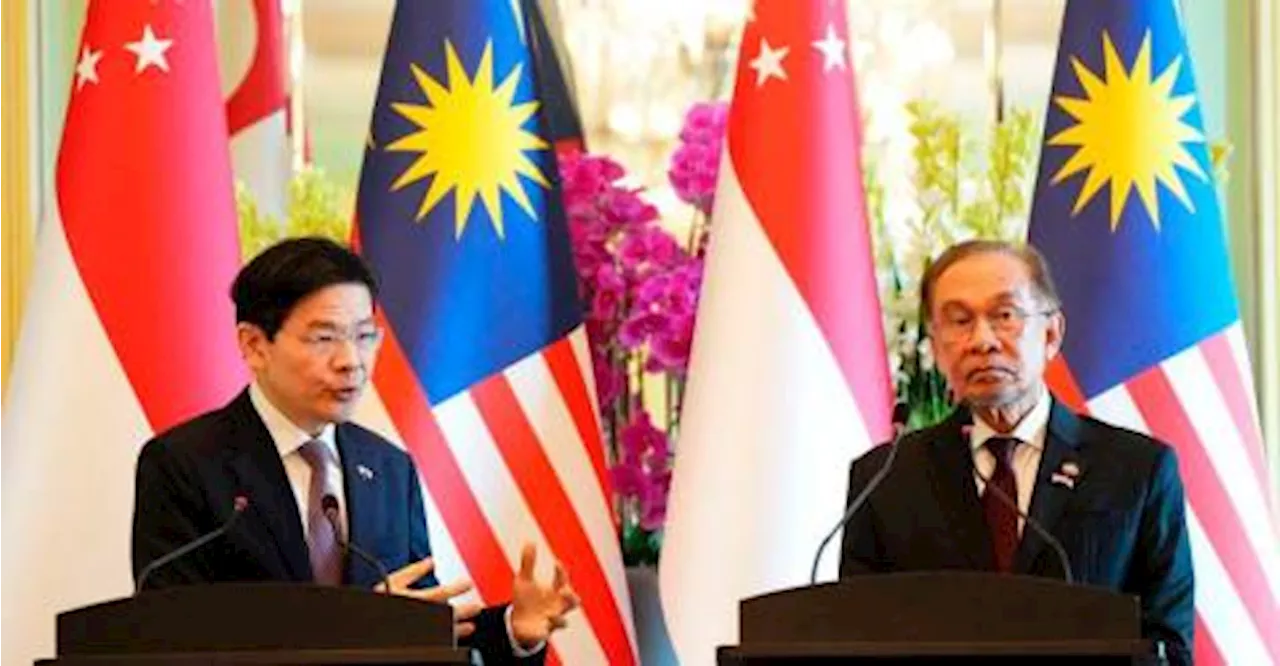 Singapore-Malaysia Ties Crucial for Strong ASEAN Amid Geopolitical RivalrySingapore Prime Minister Lawrence Wong emphasized the importance of strong bilateral ties between Singapore and Malaysia for a united ASEAN capable of navigating intensifying geopolitical challenges. Wong, speaking alongside Malaysian Prime Minister Anwar Ibrahim, highlighted the need for ASEAN to strengthen regional cooperation, particularly during Malaysia's ASEAN Chairmanship this year. Wong stressed that external competition, with nations seeking to anchor key projects closer to home, necessitates ASEAN's unity and enhanced value proposition. He also highlighted ongoing collaborative projects like the JS-SEZ and RTS Link as crucial steps towards integrated ASEAN.
Singapore-Malaysia Ties Crucial for Strong ASEAN Amid Geopolitical RivalrySingapore Prime Minister Lawrence Wong emphasized the importance of strong bilateral ties between Singapore and Malaysia for a united ASEAN capable of navigating intensifying geopolitical challenges. Wong, speaking alongside Malaysian Prime Minister Anwar Ibrahim, highlighted the need for ASEAN to strengthen regional cooperation, particularly during Malaysia's ASEAN Chairmanship this year. Wong stressed that external competition, with nations seeking to anchor key projects closer to home, necessitates ASEAN's unity and enhanced value proposition. He also highlighted ongoing collaborative projects like the JS-SEZ and RTS Link as crucial steps towards integrated ASEAN.
Read more »
